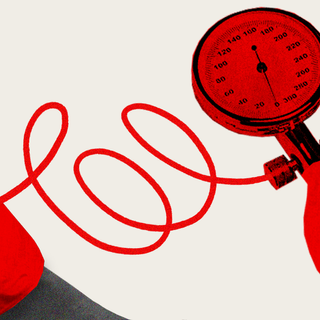We’ve been conditioned to think that, on average, sexual desire is higher among men than in women. Turns out, it’s not just a spawn of patriarchy. But it may not be rooted purely in our innate biology either — as some past research has suggested. Instead, psychology may have a role to play here: an individual’s first sexual experience greatly influences how they engage with desire in the future.
Published in the Journal of Sex Research last month, a new study took a deep dive into the subject. Analyzing the responses of 838 heterosexual participants, the researchers found that women’s sexual desire was lower than their male counterparts only if their first sexual experience wasn’t an “enjoyable” one — which is to say it didn’t result in an orgasm.
Unfortunately, “women compared to men were half as likely to report being satisfied at first intercourse, and about eight times less likely to have an orgasm… [It’s a] sexual debut that’s more frustrating than it is rewarding,” says Diana Peragine from the department of psychology at University of Toronto Mississauga, who was the first author of the study.
It is this “enjoyment gap,” as the researchers termed it, which plays a significant role in the assumption that women don’t desire as much sex as men do. “…a sexual debut lacking in orgasm may be a common part of women’s sexual socialization where sexual activity may be disincentivized,” Peragine adds. In other words, if a woman didn’t experience pleasure the first time around, the likelihood of them enjoying sex later is lesser.
Gendered experiences, rather than gender itself, plays a role in shaping women’s sexual desire. “Previously, there was this idea that sexual desire was like hunger or thirst that originates internally and emerges spontaneously… But, obviously, now, we’re understanding that it’s more dynamic and responsive to experience, and that rewarding sexual experiences shape our sexual expectations,” she notes.
Related on The Swaddle:
Women’s Sex Drive Isn’t Lower Than Men’s, It’s Just More Variable
Essentially, first sexual experiences may have an indelible impact on our sexual perspectives. “We [always] remember our first sexual experience because it was first… Firsts are often etched hard into memory, and they weigh heavily in the formation of our overall impression; hence the enlarged mark of childhood on our adult lives; hence the importance of the first date in a relationship,” wrote Noam Shpancer, a clinical psychologist from the U.S., who wasn’t involved in the present study.
Interestingly, however, the researchers didn’t find any apparent associations between men’s first experience of sex on their present degrees of sexual desire. Why that is, the researchers aren’t too sure about.
But past studies have found that men’s sexual lives, too, are impacted by their first sexual encounter. For instance, a 2012 study had found that, to a great extent, people’s — not just women’s — “first time” set the tone for the degree of sexual satisfaction they experience for the rest of their lives. “…one’s first-time sexual experience is more than just a milestone in development. Rather, it appears to have implications for their sexual wellbeing years later,” the authors noted.
Individuals whose first sexual encounter left them feeling more emotionally and physically satisfied — characterized by greater intimacy and mutual respect — also went on to have the most fulfilling sex lives compared to the other study participants. The reverse was also true: people whose first sexual experience was riddled with negativity reported lower sexual functioning in their lives.
“While this study doesn’t prove that a better first time [definitely] makes for a better sex life in general, a person’s experience of losing their virginity may set the pattern for years to come,” said Matthew Shaffer from the department of psychology at the University of Tennessee, who had co-authored the 2012 study.




